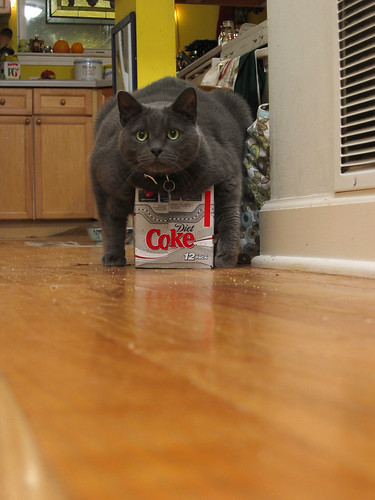
The last two letters I featured in Monday's post about letters were drawn from The Letters of Nancy Mitford and Evelyn Waugh (1996). Though they didn't begin corresponding regularly until Waugh was posted to Europe during the war, he and Mitford first became friends amidst the social whirl of young 1920s London that Waugh skewered so brilliantly in Vile Bodies.
In fact, in a scene Waugh could have written, Nancy Mitford was an eyewitness to the breakup of the Waugh's marriage: Evelyn decamped to the country in 1929 to write, and in anticipation of his absence he and his wife, who was also named Evelyn and was known by the couple's friends as She-Evelyn, invited Nancy to stay with her in their London apartment. He-Evelyn's absence apparently weighed more heavily on his wife than was expected, and before his return She-Evelyn had left him for John Heygate. Nancy, aghast, broke off her friendship with She-Evelyn, while remaining friends with He-Evelyn for the rest of his life.

From World War II until Evelyn's death in 1966, that friendship depended almost entirely on correspondence, rarely taking any other form. As Nancy's niece Charlotte Mosley, editor of the letters, explains in her preface,
[T]hey found it easier to conduct a friendship on paper rather than in person. When they did meet, Evelyn's bad temper and Nancy's sharp tongue--qualities which enhance their correspondence--often led to quarrels.But in writing to their idealized epistolary versions of one another they got along swimmingly, trafficking in perpetual jabbing banter. Complaints from Waugh--
IMPORTANT PICASSOS indeed! Talk about my becoming nicer! You couldn't write an obscene phrase like that except to offend.--crossed in the mail with extravagant exaggerations from Mitford--
I know you can't tell the difference between Lloyd George & Stalin, but other people can.--in hundreds of splendidly entertaining letters, full of cattiness, name-dropping, casual literary criticism, and mordant commentary on British and French society at mid-century.
Their correspondence includes one of my favorite letters of all time,* sent by Waugh to Mitford on July 27, 1952, in response to her question,
What do you do with all the people who want interviews, with fan letters & with fans in the flesh? Just a barrage of nos?When he received Mitford's letter, Waugh was obviously feeling of a systematic turn of mind, for he replied in detail:
I am not greatly troubled by fans nowadays. Less than one a day on the average. No sour grapes when I say they were an infernal nuisance. I divide them intoIn her reply, Mitford, after an initial lament, sharply picked up on the most important question presented by Waugh's list:
(a) Humble expressions of admiration. To these a post-card saying "I am delighted to learn that you enjoyed my book. E. W."
(b) Impudent criticism. No answer.
(c) Bores who wish to tell me about themselves. Post-card saying "Thank you for interesting letter. E. W."
(d) Technical criticism, eg. One has made a character go to Salisbury from Paddington. Post-card: "Many thanks for your valuable suggestion. E. W."
(e) Humble aspirations of would-be writers. If attractive a letter of discouragement. If unattractive a post-card.
(f) Requests from University Clubs for a lecture. Printed refusal.
(g) Requests from Catholic Clubs for lecture. Acceptance.
(h) American students of "Creative Writing" who are writing theses about one & want one, virtually, to write their theses for them. Printed refusal.
(i) Tourists who invite themselves to one's house. Printed refusal.
(j) Manuscript sent for advice. Return without comment.
I also have some post-cards with my photograph on them which I send to nuns.
In case of very impudent letters from married women I write to the husband warning him that his wife is attempting to enter into correspondence with strange men.
Oh, and of course
(k) Autograph collectors: no answer.
(l) Indians & Germans asking for free copies of one's books: no answer.
(m) Very rich Americans: polite letter. They are capable of buying 100 copies for Christmas presents.
I think that more or less covers the field.
Love,
E
You are heavenly. Bref, however, I note that you do answer, even if only with insults. I was rather hoping you would say you don't bother to.They were perfectly suited as correspondents, and their collected letters provide readers near endless amusement with which to while away many a snowy winter afternoon--and offer aspiring wits many a line ripe for stealing.
How do you know if Americans are rich? I suppose you assume they all are.
*Another of my very favorite letters similarly incorporates an entertaining list: in the midst of an ordinary letter she sent me recently, my friend Maggie broke off unexpectedly from whatever subject she'd been on and instead began listing hilariously apt names for non-existent Harry Potter characters. She came up with twenty-two of them--but, alas, before I could transcribe them, one of our cats vomited extravagantly on the letter, rendering it untouchable. Such are the felne dangers that perpetually stalk nondigital media.

Kind of the 00s version of "the dog ate my homework."
ReplyDeleteit was actually this cat. he enjoys books and letters, but not the way we do.
ReplyDelete